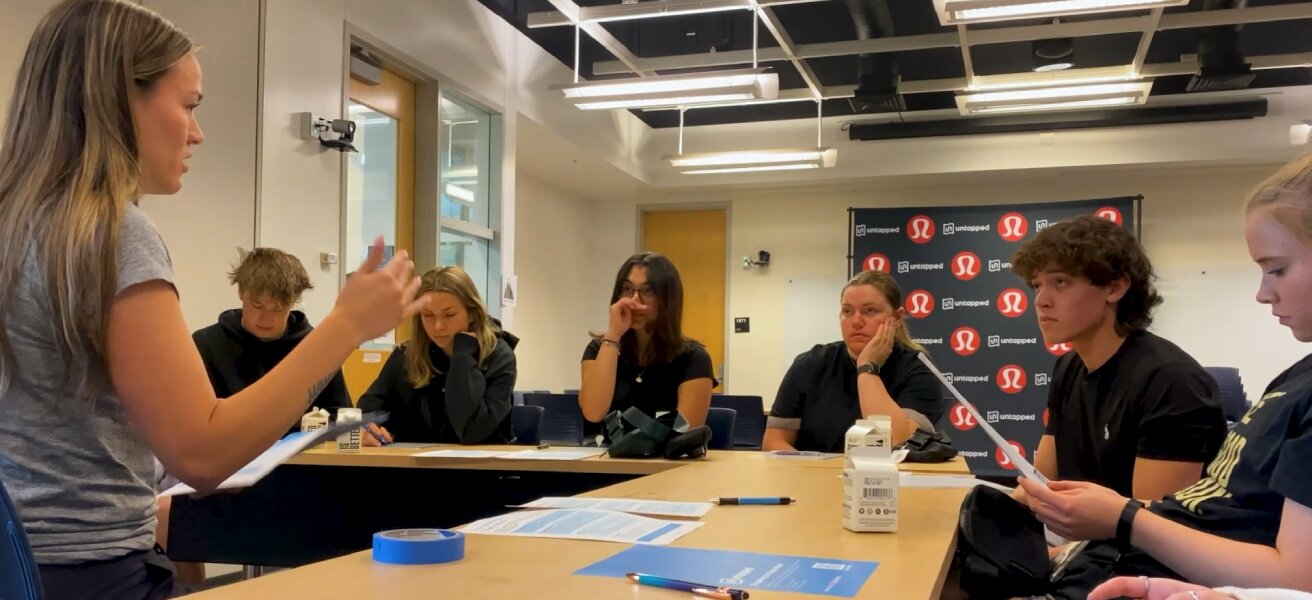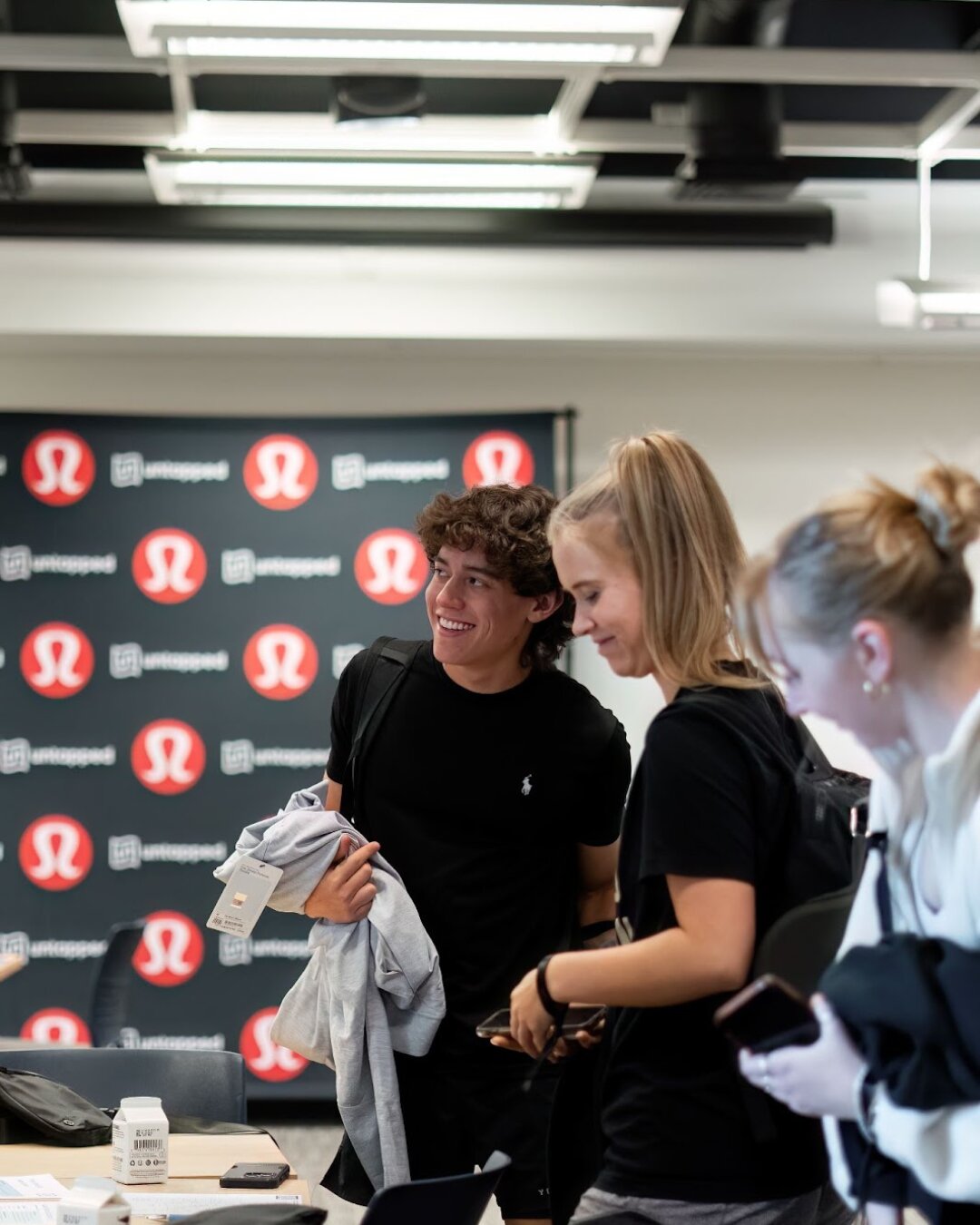Studying is a skill that requires development, and educators need to recognize that not all students naturally possess (or have been taught) effective study habits. While students may have been studying for years, everyone learns differently, and their study routines should accommodate their unique needs. Here are some of Untapped’s recommendations for teaching students effective study habits.
Creating the Right Study Environment
Teaching students how to study includes discussing the importance of the study environment. The atmosphere should resemble the test-taking setting to enhance performance. For instance, if students take assessments at a desk, it’s more effective for them to study in a similar setting rather than lying in bed. Educators should teach students and parents about replicating the test environment during study sessions.

To establish healthy study habits, students should consistently do their homework at the same place and time daily. For example, students can designate their kitchen table as their study spot from 7:00-8:00 pm every evening. This routine primes the brain for information retention and improves focus. After a few weeks of successfully studying in the same location and time, students can diversify their study locations to simulate different neural pathways and improve retention.
From Short-Term to Long-Term Memory
Students often struggle with transferring information from short- to long-term memory due to attention challenges, learning disabilities, or lack of discipline. As educators, we can guide them through this process and teach strategies to enhance memory retention.
Review notes over time: the opposite of “cramming.” Encourage students to review their notes shortly after class and revisit them multiple times throughout the semester. Short and frequent study sessions help commit information to memory.
Use novelty. The brain remembers surprising or unusual events. Incorporate humor, songs, or other surprise elements into the learning process. Students can create mnemonic devices or associate information with funny anecdotes to enhance retention.
Relate information to personal experiences. Encourage students to connect the material they need to memorize with their own lives. Relating concepts to personal experiences improves memory recall. Ask questions like, “How does this relate to you?” or, “What does this remind you of?” to help establish personal connections with the material.
Use repetition. Repetition strengthens neural synapses in the brain. Practice concepts repeatedly to reinforce memory. Spacing out repetition over multiple days is particularly effective for long-term memory.Prioritize students’ overall health. Physical and mental well-being impact memory function. Adequate sleep, balanced nutrition, and regular exercise all actively contribute to improved memory and cognitive performance. A student’s physical and psychological well-being plays a significant role in memory function. Encourage students to maintain healthy habits to support their overall brain function.
By implementing these strategies and considering students’ needs, we can support the transfer of information from short-term to long-term memory.
Active Studying
Students should adopt active studying techniques to optimize limited study time and enhance engagement. This approach involves making decisions, interacting with the material, and asking relevant questions. Active studying ensures strong attention, dynamic processing, and meaningful material retention, improving comprehension and long-term learning.
Teaching active studying can be effectively demonstrated by educators. They can model active studying techniques during class and encourage students to ask questions such as:
Why is this important?
How will you remember this information?
How can you associate this with information you already know?
How can you organize this information?
By actively engaging in this manner, students develop effective study habits and witness the positive impact of active studying. Over time, students can apply these strategies independently, enabling them to study more efficiently.
Metacognition
Metacognition, the ability to understand and be aware of one’s thinking process, is a powerful study technique supported by extensive research. Educators can introduce this concept to students as a specific form of self-reflection: “thinking about how you think.” Developing metacognitive skills enables students to study and learn more efficiently and effectively. Although it may be challenging for some students, investing time and effort in teaching this concept is highly beneficial. One impactful question that educators can ask is, “How will you remember this information?” This prompt requires students to think critically of ways that will help them. For example, to memorize the word malevolent, a student might say, “I will remember ‘malevolent’ because ‘mal’ means ‘bad’ in Spanish.”
To reinforce metacognition, educators can use additional questions such as:
What study methods have worked best for you in the past?
Do you learn material better from listening to information presented during class or by reading the textbook?
Can you think of an alternate way to remember this information?
Does this material remind you of anything else you’ve learned?
Study Groups
For students with anxiety or attention difficulties, finding a study group that’s a good fit can significantly improve their understanding of new concepts or material. These students often excel in social skills and are frequently auditory learners. Participating in a study group enhances these skills and facilitates more efficient mastery of information. Study groups provide an environment where students can sustain attention for extended periods compared to studying alone. Additionally, peer observation in these groups promotes learning study techniques and discipline, which is more effective than solely learning from adults.
However, finding suitable study groups can be challenging and anxiety-provoking for many students. Initiating a study group may be perceived as uncool. As educators, advocates, and mentors, we are responsible for providing students with a script to help them create study group discussions. If a student is not ready to seek out a study group, assisting them in accessing resources such as the school’s writing center, tutors, or office hours will ensure they still receive the study support they need.
School Study Sessions
Providing teacher-led study sessions is crucial for students to navigate the educational system effectively and improve classroom and assessment performance. By participating in these “review” sessions, students ensure focused practice on assessment material, allowing teachers to prioritize essential content and optimize study time. Independent studying can often lead to wasted time on irrelevant material, causing frustration and dislike for studying. Attending study sessions increases the likelihood of success.
In addition to exam-related topics, educators should model effective study techniques during these sessions: referring to notes, using text evidence, and incorporating metacognition and repetition. Students learn these techniques better through modeling than explicit instruction. Attending teacher-run study sessions promotes the principle of “discipline equals freedom,” increasing exam success and developing valuable study habits. By having the discipline to attend a one-hour, teacher-led study session, students will save themselves multiple hours of less focused studying on their own. It also strengthens the student-teacher relationship, demonstrating student commitment to the class. Despite initial challenges, investing time in providing study sessions is highly beneficial to student success.
Accessing Resources
Adults invest time in creating Individualized Education Plans (IEPs), 504 Plans, and other support for students, but often these resources go unused. Lack of awareness is common as students may be unaware of available resources, such as writing tutors or exam accommodations. Parents and teachers should review the student’s 504 or IEP with them, translating complex terms into student-friendly language. For example: explain that “preferential seating” means they can sit close to the board. After introducing the accommodations, have a conversation about how to access and advocate for them. Role-playing can help students understand how and when to seek assistance. Utilizing these resources improves student success, so it is essential to ensure students are aware of and take advantage of them.
As an educator, you work tirelessly to support your students’ growth and success. Thank you for all that you do. Let Untapped help your staff develop strategies to improve all students executive function skills.
For More:
Teaching Students to Use Evidence-Based Studying Strategies
Studying 101: Study Smarter Not Harder
Teaching students how to study





